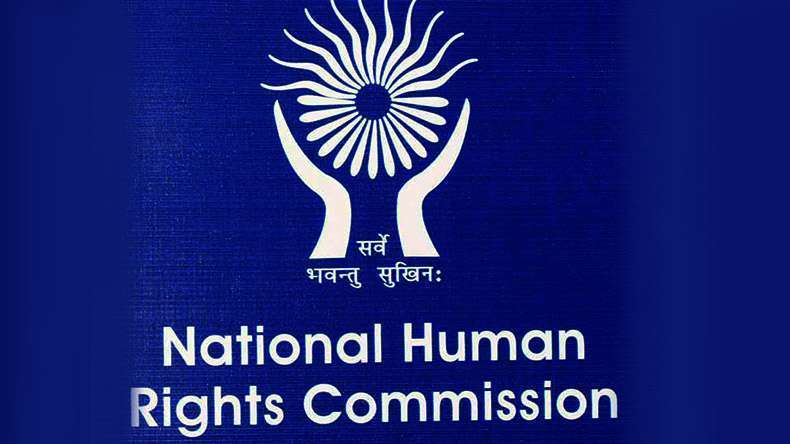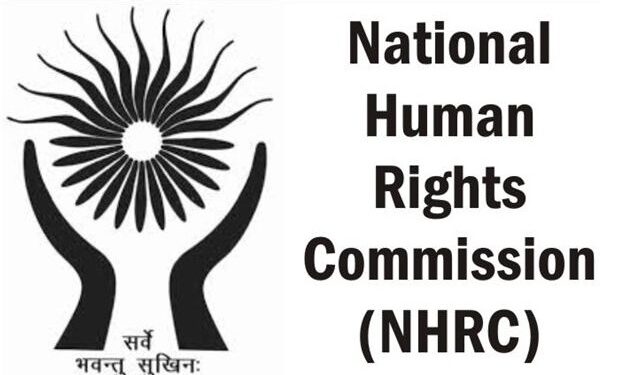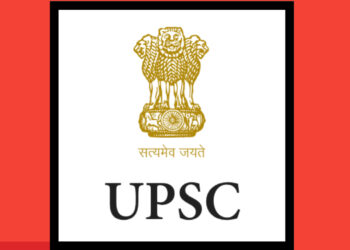Introduction
How To Approach Human Rights In UPSC GS Paper 2 Important topics related to government, constitution, polity, social justice, and international relations are covered in General Studies Paper 2 (GS Paper 2) of the UPSC Civil Services Examination (CSE). Human rights are important among these since they are intertwined with international conventions, governance, and constitutional principles. Both the Main Exam, which evaluates a deeper comprehension of many concerns, and the Preliminary Exam, which measures general awareness, require an understanding of human rights.
The fundamental tenets of justice, equality, and fairness in society are based on the idea of human rights. The essential rights that are the foundation of human rights in India are guaranteed to its citizens by the Constitution itself. The importance of human rights concerns is further highlighted by India’s participation in international human rights frameworks like the United Nations and the International Covenant on Civil and Political Rights (ICCPR).
1. Understanding Human Rights: A Global and Indian Perspective
Understanding what human rights are and why they are essential in India and around the world is crucial before getting into the intricacies of human rights in the context of the UPSC curriculum.
1.1. Defining Human Rights
Regardless of a person’s nationality, ethnicity, gender, religion, or social standing, human rights are a set of values and legal requirements that are intended to safeguard their freedom, equality, and dignity. International agreements such as the International Covenant on Civil and Political Rights (ICCPR) and the Universal Declaration of Human Rights (UDHR) uphold these rights.
Fundamentally, everyone, everywhere, has the right to life, liberty, and security, and no one can willingly or unwillingly give up these rights because they are indivisible, interdependent, and inalienable. The primary goal of the international human rights framework is to safeguard essential liberties like:
- Civil and Political Rights: Freedom of speech, right to a fair trial, freedom from torture, and protection against arbitrary detention.
- Economic, Social, and Cultural Rights: Right to education, health, and work under fair conditions.
- Collective Rights: The right to self-determination, protection of minorities, and rights to development.
1.2. Evolution of Human Rights
Following World War II, the United Nations (UN) played a vital role in the development of the contemporary notion of human rights. A significant step toward the international recognition of human rights was the 1948 adoption of the Universal Declaration of Human Rights (UDHR). The foundation for further international treaties and conventions was laid by the UDHR’s thirty articles, which created a common norm for the protection of human freedoms and dignity.
The UDHR and numerous other international treaties, such as the International Covenant on Economic, Social, and Cultural Rights (ICESCR), which supplements the ICCPR and focuses on economic rights, health, and education, were signed by India as a member of the UN.
Human rights in India have its roots in the Constitution, with Part III’s Fundamental Rights offering a legal basis for the defense of equality before the law and civil liberties. These rights include the freedom of expression, the right to equality, the right to personal freedom and life, and the right to be free from discrimination.
Read more
2. Human Rights in the Indian Constitution
Knowing how the Indian Constitution handles the subject is an essential component of UPSC’s human rights coursework. The Indian Constitution is a thorough text that contains numerous clauses pertaining to the defense of human rights.
2.1. Fundamental Rights
The Indian Constitution’s Fundamental Rights (Articles 12 to 35) establish the foundation for human rights in India and ensure that individual rights are protected from state interference. Because these rights are justiciable, courts have the authority to uphold them.
- Article 14: Right to Equality – Guarantees equality before the law and equal protection of the law.
- Article 19: Right to Freedom – Includes freedom of speech and expression, assembly, association, movement, residence, and profession.
- Article 21: Right to Life and Personal Liberty – This is one of the most important articles for human rights, which protects the right to life and personal liberty and has been interpreted expansively by the Supreme Court of India.
- Article 23: Prohibition of Trafficking and Forced Labor – Ensures protection against exploitation.
- Article 24: Prohibition of Employment of Children in Factories – Protects children from exploitation in the workforce.
2.2. Directive Principles of State Policy
The foundation for human rights in India is laid by the Fundamental Rights (Articles 12 to 35) of the Indian Constitution, which also guarantee that individual rights are shielded from state intervention. Courts have the power to protect these rights because they are justiciable.
2.3. Protection of Human Rights Act (1993)
The National Human Rights Commission (NHRC), which was founded by the Protection of Human Rights Act (PHRA), 1993, is responsible for upholding and advancing human rights in India. In India’s human rights framework, the NHRC is a crucial organization that handles complaints, keeps an eye out for abuses, and advises the government.
Read more
3. Key Areas to Focus on for UPSC GS Paper 2
The topic of human rights in UPSC GS Paper 2 encompasses a number of topics, including international frameworks, constitutional requirements, and the function of Indian institutions in upholding human rights. Candidates must to concentrate on the following main ideas:
3.1. Fundamental Rights and Social Justice
Understanding the relationship between fundamental rights and social justice is essential. Human rights cannot be fully enjoyed without social justice. Analyzing the Right to Equality, Right to Freedom, and the Right to Life and Personal Liberty will help aspirants understand the scope of constitutional rights.
3.2. International Human Rights Frameworks
A significant part of human rights in the context of UPSC is understanding international human rights instruments. This includes studying:
- Universal Declaration of Human Rights (UDHR)
- International Covenant on Civil and Political Rights (ICCPR)
- International Covenant on Economic, Social, and Cultural Rights (ICESCR)
- Convention on the Elimination of All Forms of Racial Discrimination (CERD)
- Convention Against Torture and Other Cruel, Inhuman or Degrading Treatment or Punishment (CAT)
Candidates must understand India’s ratification status of these conventions, how they influence national policies, and the challenges India faces in implementing these rights.

3.3. Human Rights Violations and Protection Mechanisms
This area includes the study of various human rights violations in India, such as:
- Rights of women and children
- Rights of minorities and marginalized groups
- Rights of tribal communities
- Rights of persons with disabilities
- Right to freedom of speech and expression
Additionally, aspirants should focus on the institutional mechanisms in India for the protection of human rights, including:
- National Human Rights Commission (NHRC)
- State Human Rights Commissions
- Judicial Role: The role of the Indian judiciary in safeguarding human rights through judicial activism and landmark cases like the Right to Privacy (Puttaswamy Case), Bhopal Gas Tragedy, and Killing of Innocent People in Fake Encounters.
3.4. Human Rights and Good Governance
Understanding the connection between human rights and good governance is important for GS Paper 2. A government that is transparent, accountable, and responsive to the needs of its citizens is more likely to protect and promote human rights.
Key areas include:
- Accountability of government agencies
- Corruption and its impact on human rights
- Role of civil society organizations in promoting and protecting human rights
4. How to Approach Human Rights for UPSC Preparation
To prepare effectively for human rights-related questions in UPSC GS Paper 2, aspirants should follow a structured approach:
4.1. Start with the Constitution
Begin by understanding the Constitution of India, particularly the provisions related to Fundamental Rights and Directive Principles of State Policy. Focus on articles that protect civil liberties and socio-economic rights, and familiarize yourself with landmark judgments that have interpreted these rights.
4.2. Study International Human Rights Law
Examine and evaluate the main international human rights treaties, such as the International Covenant on Civil and Political Rights (ICCPR), the Universal Declaration of Human Rights (UDHR), and the International Covenant on Economic, Social, and Cultural Rights (ICESCR). Recognize India’s ratifications, its place in these international frameworks, and the difficulties it has fulfilling its commitments under international human rights law.
4.3. Analyze Case Studies and Reports
Use real-life case studies and reports from credible sources like the National Human Rights Commission (NHRC), UNHCR, Amnesty International, and Human Rights Watch to understand the practical aspects of human rights issues in India and globally. Analyze the steps taken by the government to address human rights violations and the challenges in enforcing human rights.
4.4. Keep Track of Current Affairs
Stay updated with current affairs related to human rights, such as:
- Human rights violations in conflict zones (e.g., Jammu & Kashmir, North-East India)
- Supreme Court judgments on human rights
- Reports on the rights of marginalized communities
4.5. Use Government Reports and Schemes
Go through government schemes and programs aimed at promoting human rights, such as the Protection of Human Rights Act, National Commission for Women (NCW), and National Commission for Minorities (NCM). Familiarize yourself with the challenges in the implementation of these programs.

Conclusion
UPSC GS Paper 2’s study of human rights requires a thorough comprehension of both international and constitutional frameworks. In addition to learning about the theoretical underpinnings of human rights, candidates must investigate its institutional procedures, case studies, and practical applications. Human rights are essential to a democratic society’s operation, and candidates who possess a comprehensive grasp of these topics will be better equipped to contribute to the creation of a society that is just and equal.
Read more
FAQ
1 Why are human rights important in UPSC GS Paper 2?
In India, social justice, governance, and constitutional law are all based on human rights. Answering inquiries about public administration, foreign relations, constitutional requirements, and governance requires an understanding of them.
2 How can I approach the topic of human rights for UPSC?
Focus on the constitutional provisions, international frameworks, key human rights violations, and the role of various institutions like NHRC. Use case studies and current affairs to supplement your preparation.
3 What are the key international human rights conventions?
The International Covenant on Civil and Political Rights (ICCPR), the Universal Declaration of Human Rights (UDHR), the International Covenant on Economic, Social, and Cultural Rights (ICESCR), and others are important treaties.
4 How do fundamental rights in the Constitution of India relate to human rights?
Fundamental Rights in the Constitution protect civil liberties and human rights, ensuring equality, freedom, and justice for all citizens. They form the legal basis for enforcing human rights in India.
5 How does the government protect human rights in India?
The National Human Rights Commission (NHRC), State Human Rights Commissions, judicial activism, and laws like the Protection of Human Rights Act are some of the ways the government upholds human rights.
Read more

















